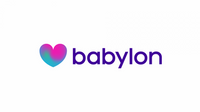Three steps to developing a mental health-friendly culture

In England alone, one in six people report experiencing anxiety and depression during any given week. It’s no exaggeration to say that if we took our mental health as seriously as we took our physical health, the whole world would be a better place.
So why not start in the office?
Today, more and more companies are realising the importance of prioritising the mental wellbeing of their employees. But not everyone has caught on. For many employees, mental health is still a taboo topic at work. In fact, according to the president of the Royal College of Psychiatrists, Simon Wessely, only one-third of people with mental health problems get the treatment they need.
It’s time to acknowledge that individuals who are suffering from mental health problems should get the help they deserve – both at home and at work.
Here are three simple ways to start transforming your company culture into to one that supports every aspect of employee wellbeing.
1. Watch your words
Unfortunately, many people still use mental health conditions as damaging euphemisms in everyday conversation. Although it may seem harmless, we could all stand to be a bit more considerate.
Imagine how you would feel if you suffered from a mental illness and you overheard one of the following phrases:
“She’s acting crazy again!” “They ran out of coffee today. I’m so depressed!” “OMG, the weather is so schizo lately!”
These are just a few examples of how people nonchalantly use terms that may seem trivial, but may actually dehumanize the individuals who are suffering from these conditions.
Lead by example in the office by making some simple changes in your word choices. Avoid words such as, 'schizo', 'lunatic', 'nutter', 'maniac' and 'mad'. You may be surprised how a seemingly small thing like minding your language can have a big impact in creating a mental health-friendly workplace.
2. Encourage open discussion
Many mental health problems can be faced head-on simply by acknowledging them. And as a leader in the workplace, these conversations should start with you. Survey results from mental health charity Mind, have shown that only 41 per cent of employees feel their company encourages them to talk openly about mental health. One simple but powerful example of doing it right is Ben Congleton, CEO of Olark Live Chat, whose kind reply to his employee's email went viral.
Congleton said, “It is incredibly hard to be honest about mental health in the typical workplace. In situations like this, it is so easy to tell your teammates you are ‘not feeling well’. Even in the safest environment it is still uncommon to be direct with your coworkers about mental health issues. I wanted to call this out and express gratitude for Madalyn’s bravery in helping us normalise mental health as a normal health issue.” It just makes sense. If people who are physically unwell are allowed time off to rest and recover, mental illness should also be accommodated.
3. Make mental healthcare accessible
Every individual suffering from a mental health problem is fighting their own unique battle, and it may have a tangible impact on their ability to work.
In fact, findings from the Mental Health Foundation show that major depression is the second leading cause of disease worldwide and that in the UK, it has been the cause of around 20 per cent of lost time from work.
Whether your employees are battling depression or another mental illness, the impact may be truly debilitating. No one should have to walk that path alone. Take active measures to encourage your employees to reach out and get help whenever they need it.
This article was provided by babylon.
Supplied by REBA Associate Member, babylon
babylon is the UK's leading digital healthcare company.







